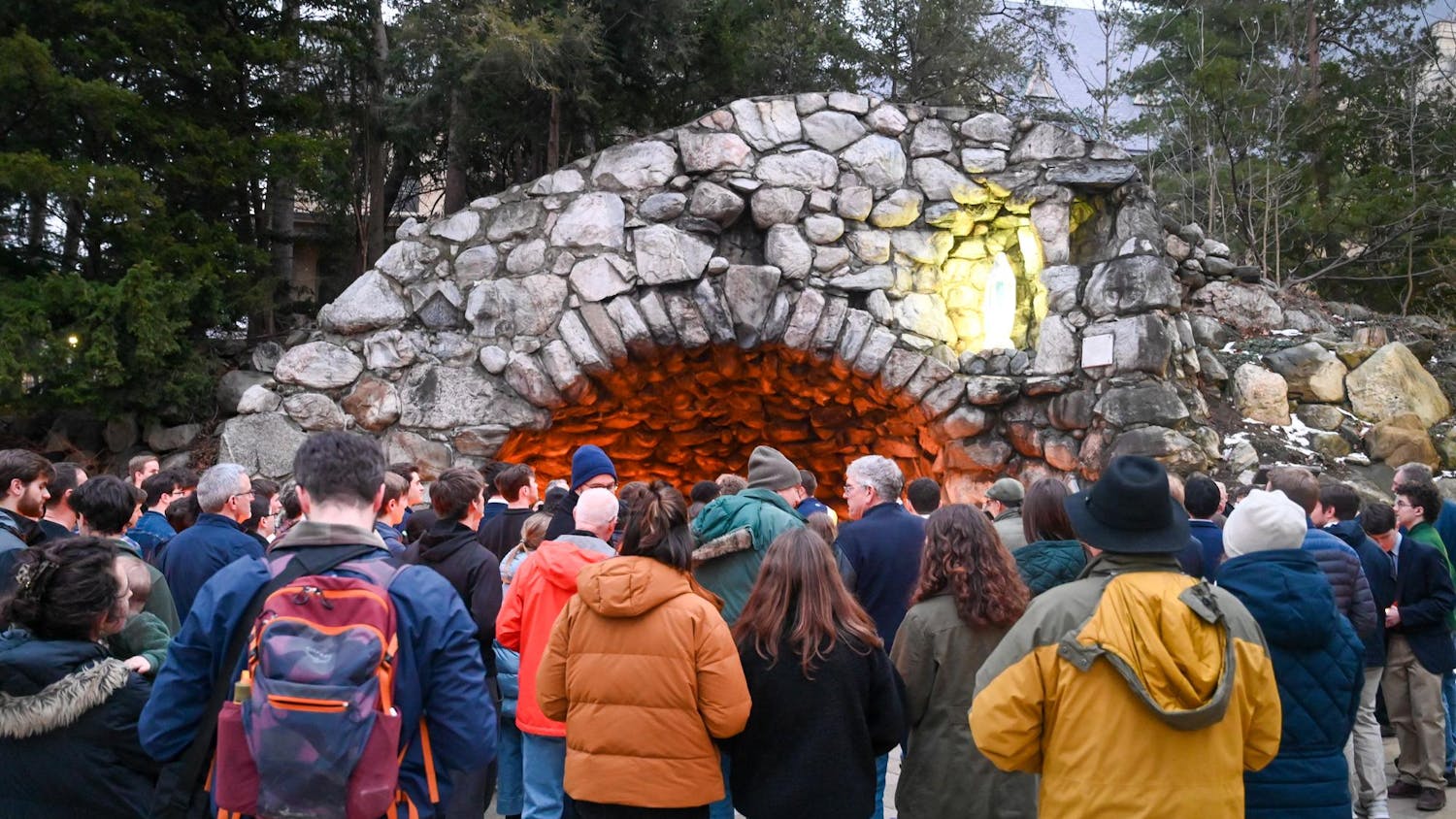Reza Aslan, internationally acclaimed writer and scholar of religions, explored the life of Jesus and the way it is viewed by modern society in a lecture titled “Zealot: The Life and Times of Jesus of Nazareth” on Tuesday as the 2014 Christian Culture Lecture at Saint Mary’s.
In his lecture, based off of his New York Times best-selling book by the same name, Aslan said there are differences between the historical Jesus and Jesus the Christ. He said these distinctions demand public attention because different cultures interpret Jesus differently based on their own traits and histories.
“You see, this is the thing about the Christ of faith: he is in many ways an infinitely malleable thing,” Aslan said. “He can be whatever a community that worships needs him to be and he has been for the last 2,000 years.
“He can take on any ethnicity, he can absorb any history you may have. He can take on any politics you may have … this isn’t just an artistic representation; it is much more than that. This isn’t just a figure to be represented, this is a person of worship, a source of emulation. There are thousands more [representations] I could have shown you. They are attempt by various Christian communities around the world make Jesus their own.”
Aslan said he wanted his book to explain to a faith-based audience what consequences come from believing Jesus was fully divine and fully human.
“Part of the reason I wrote this book is because I wanted to say in particular to a faith-based audience that there is a consequence to this belief,” Aslan said. “That whatever else Jesus was, God incarnate, whether he was the Messiah, the Son of God, whatever else he was, he was also a man.
“There is a consequence to that because if he was also a man, then he was product of his time and place,” he said. “If he was also a man, then he was addressing very specific social ills. If he was also a man, he was addressing very specific religious and political powers. If he was also a man, he was also whatever else he was, deeply influenced by the world he lived.
"And so it was the knowledge of that world which makes him extraordinary. Thinking of him in his humanity doesn’t take away what is special about him; it makes him even more special.”
Aslan said the “bare bones” of Jesus’ story as a human being is what sets him apart from the rest of mankind.
“You are talking about a poor — and when I say poor I mean poorest of the poor — a poor, marginal, uneducated, very likely illiterate Jewish peasant from the backwoods of Galilee, who nowadays would be referred to as a country bum,” Aslan said. “Who despite all of that, through the power of his teachings, the power of his charisma, managed to launch a movement on behalf of the poor and the weak, the marginalized, the dispossessed, women especially — a movement which was seen as such a threat to the largest empire the world had ever known, that he was hunted down like a criminal, arrested, tortured and executed for sedition.
“I don’t know about you, but that is the most interesting man in the world to me. If I just told you that — don’t call him Jesus; call him Fred if you want — if I just told you this story about this guy, wouldn’t you want to know who that guy is? To me, it’s the humanity of Jesus that makes him extraordinary.”
Aslan said distinguishing the difference between spiritual truth and historical fact when reading sacred scripture is crucial because in the ancient world the Gospel writers were not concerned with allowing the Gospels to be factual and historically accurate.
“It is a very difficult thing for us in the modern world to understand because we read the Gospels like we are reading the history of Napoleon and that is not what we are reading,” Aslan said. “Sacred history is not history, and I truly and honestly believe — and this is true of all scripture whether you are talking about a Hebrew Bible, the Quran or the Gospel — I truly believe we would have a more peaceful civilization, that we ourselves would be more spiritually fulfilled, which is to stop focusing so hard on the facts of your scripture and focus on the truth of your scripture.”
Read More
Trending









